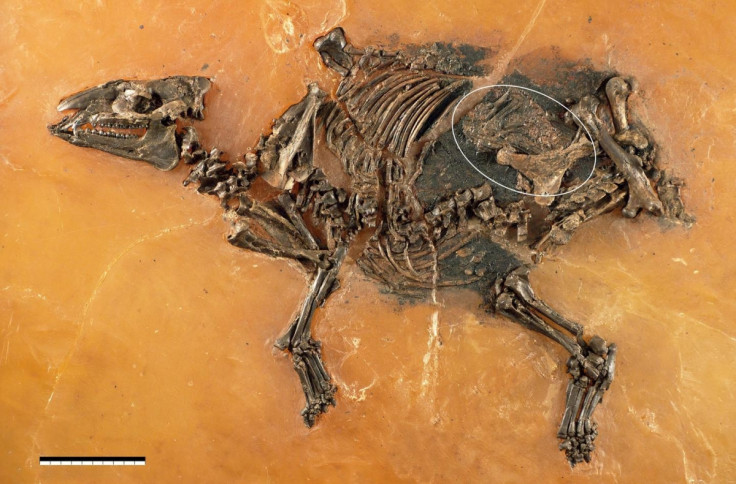Frankfurt: 48 million year old horse-like foetus discovered

Researchers from the Senckenberg Research Institute Frankfurt in Germany and Naturhistorisches Museum Basel in Switzerland have announced the discovery of a 48 million year old horse-like foetus. The amazingly well preserved equoid stillborn was unearthed near Frankfurt in 2000.
Almost all of its bones are still intact with the exception of its skull, which looks to have been crushed. The team from the two institutes undertook an analysis of the bones and used scanning electronic microscopy (SEM) and high-resolution micro-X-ray to get a better picture of the animal, which allowed them to determine the position when it died.
Soft tissue such as the uteroplacenta – the placenta and uterus – and a uterine ligament were also well preserved and lead author Jens Lorenz Franzen of the Senckenberg Research Institute and Naturhistorisches Museum believes this could be the "earliest fossil record of the uterine system from a placental mammal". By using SEM, they found a bacterial lawn had replaced most of the soft tissues.
Franzen told IBTimes UK: "The uterine system of the Eocene mare from Messel corresponds already with that of modern horses, although it is the oldest one known up to now. This pushes its origin back into the Paleocene or even the Mesozoic. It is remarkable that at the time of the Messel mare, the locomotory system was still rather primitive, displaying eg 14 instead of four hoofs in modern horses."
The foetus, which measures just 12.5cm, is thought to have died shortly before it was born, according to a study published in PLOS One.
© Copyright IBTimes 2025. All rights reserved.






















